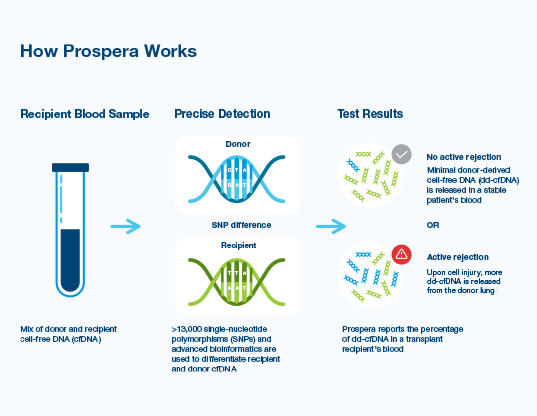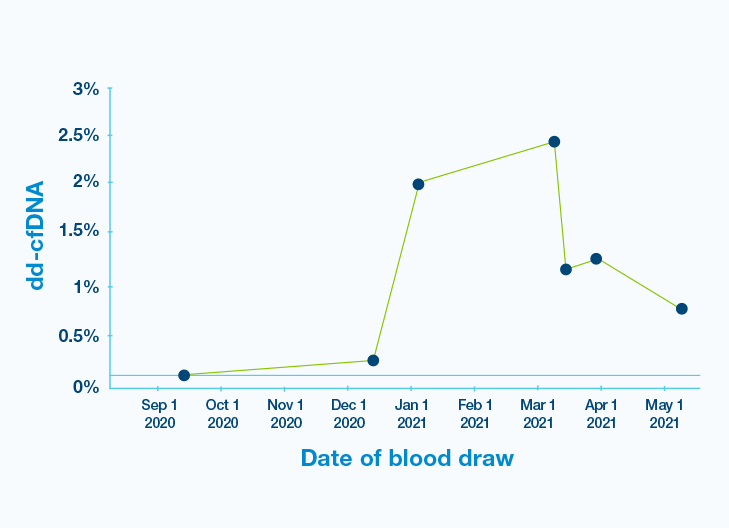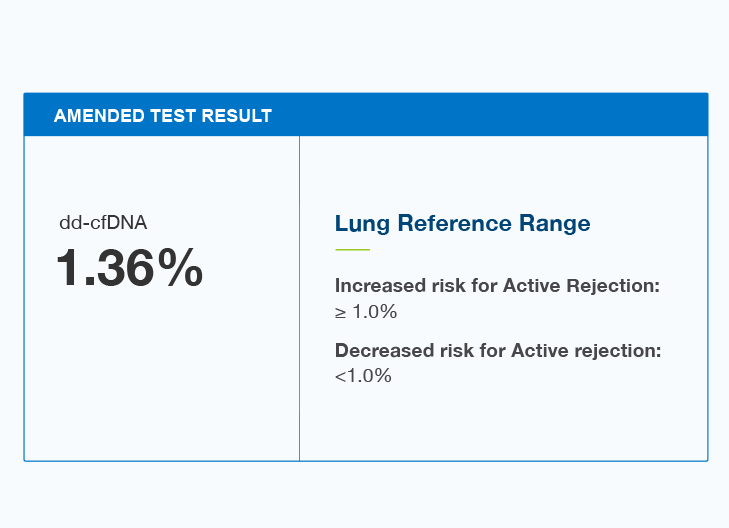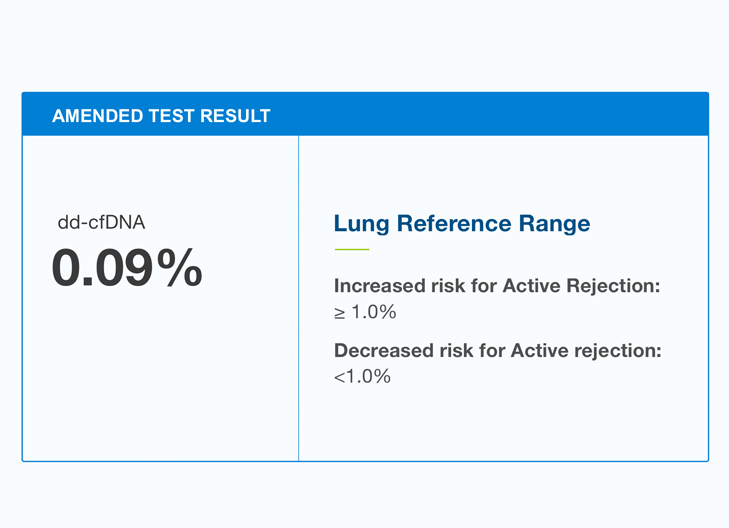
How does it work?
From a simple blood draw, Prospera measures the amount of donor DNA from your transplanted lung in your blood. This helps your care team assess all types of rejection more precisely than using the available standard assessment tools alone.
What do the Prospera results mean to me?
The Prospera result represents the percent of cell-free DNA in your blood that originates from the donated lung to determine whether or not you may be experiencing active rejection. It may also indicate other types of lung injury you are experiencing.
Like your other regular monitoring tests, Prospera is recommended for periodic use over time as directed by your doctor.

A way to track your cell-free DNA over time
- Establishing a baseline tells you and your care team the “normal state” of your new lung. You can measure new results against this baseline.
- Following your levels in the future reveals your new organ’s health

If a Prospera result is above 1.0%
This may mean that active rejection is occurring. Terms used to describe the various types of active rejection include:
- Antibody-mediated rejection (AMR)
- Acute cellular rejection (ACR)
- Mixed rejection
To confirm a rejection and the type of rejection, you should consult with your doctor.

If a Prospera result is in the normal range
This may mean that your transplanted organ is stable.
Patients first, partners always

Always by your side: Natera’s care team will guide you through the process of using Prosper and check-in with you at every milestone.

Flexible for your convenience: Our team coordinates blood draws around your schedule. We can schedule a draw at a certified laboratory near you or by a blood draw specialist who can come to you.

Financial support: Natera welcomes all insurances, and our goal is to make the process easy and transparent for patients. In the rare event you have financial responsibility, Natera offers flexible financial assistance programs and will work closely with you to ensure there is no hardship on you or your family.
Sign up to find out if you’re eligible for Prospera
References
1Natera Inc. Natera validation data: manuscript submitted. Data on file.
2Sigdel TK, Archila FA, Constantin T, et al. Optimizing detection of kidney transplant injury by assessment of donor-derived cell-free DNA via massively multiplex PCR. J Clin Med. 2019;8(1):19.